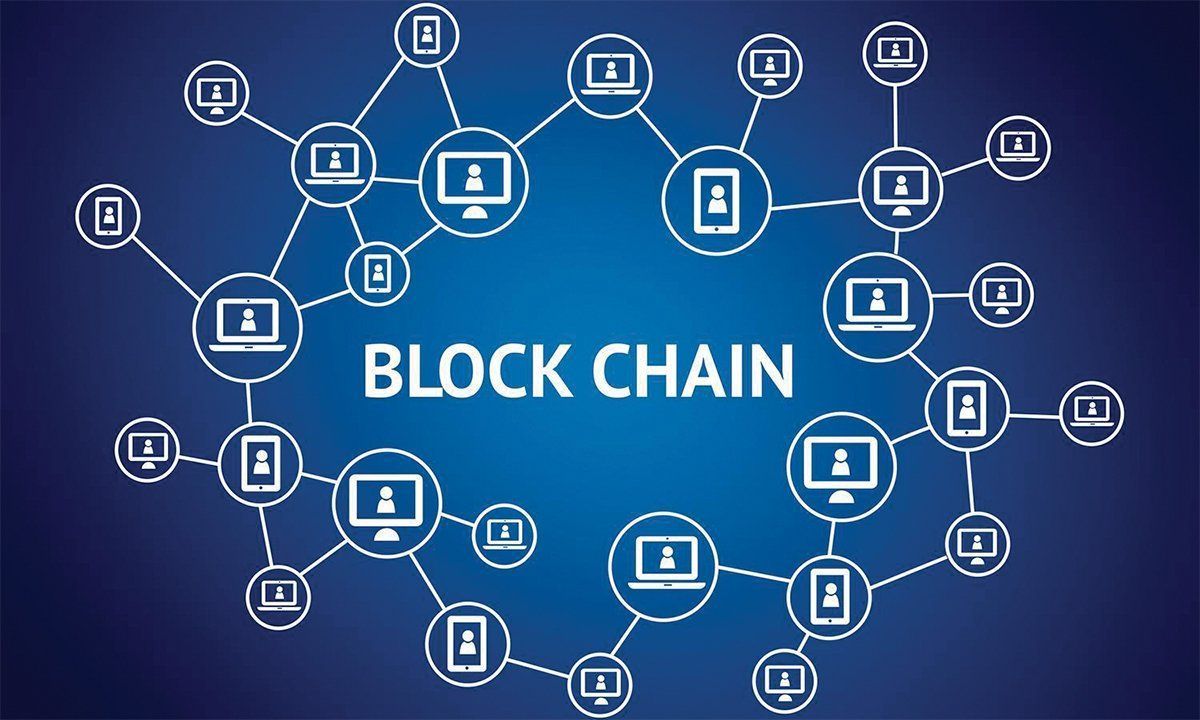Bonnie is licensed in both Ohio and Kentucky, specializing in residential, commercial, estate sales, and investment portfolios. Bonnie won the Best Of Zillow award for her customer reviews and sales in 2020. She also won Rookie Of The Year and Top Earner award for Ken Perry Realty in 2020. She is a proud member of the Cincinnati Area Board of Realtors Arbitration and Grievance Committee.
Everything Realtors Should Know: Real Estate On Blockchain
It seems everywhere you look today there is a news report on cryptocurrency, bitcoin, Ethereum, blockchain, NFT’s, and the like. Since the outbreak of the Covid-19 pandemic, just about everything went digital. While some of you may be no stranger to this technology, let’s break things down in laymen’s terms before we delve in on how this applies to real estate.

What is the blockchain?
In the simplest of terms, blockchain is a database. It’s a bit more sophisticated than Microsoft Access circa 1992, but fundamentally it provides information storage in the form of blocks. Said “blocks” are then “chained” together. That’s our lesson for today, kids. Now go break some eggs! Without nerding out on the subject, we’ll go a bit deeper. You still may be asking yourself how a blockchain is different from a regular database. Good question. Blockchain is a database on steroids, run by tons of servers with the capacity to hold a gargantuan amount of information. This information is then tokenized for security. You are probably familiar with encrypted information, which is a method that mathematically changes text using an algorithm to hide sensitive data. Tokenization takes the plain-text info and replaces it with random “tokens” which are irreversible. This heightened security is needed for things like financial information, social security numbers, and the like. So, how could blockchain apply to real estate?
Think of your typical real estate transaction. There are a lot of moving parts that require intermediaries to facilitate the exchange between the buyer and seller. There may be real estate agents, brokers, financial institutions, title lawyers, etc. all working on the deal and all requiring a fee for services rendered. The blockchain can eliminate the back and forth by allowing the trade to go from buyer and seller directly with no middlemen in the equation. This saves time, money, eliminates room for error, and drastically reduces the potential for fraudulent activity.
The Disruptors…
This may sound like some space-age way of handling business that traditional real estate agents won’t have to worry about until years down the road. Think again. Captain Kirk just got back from space. The future is now and there is a name you should know pioneering this approach to real estate. Here at Perry Real Estate College, we are always striving to make the user experience a better one. More streamlined, more user-friendly, more knowledge in less time. Our students want “click and magic happens.” So was the ideology of Natalia Karayaneva, a real estate professional for more than 15 years who knew there was a better way to do business. Her idea to put real estate on the blockchain was met with skepticism. Progress was made and her idea is now a reality. This year, Natalia’s company sold the founder of TechCrunch’s property as the first-ever NFT in real estate. And they said it would never work…..
The Future of Real Estate
Cryptocurrencies have had their place on the blockchain for quite some time now. Real estate is the new kid on the block. Smart contracts will enable buyers and sellers to work directly with one another, eliminating the need for an additional liaison. This saves time, money, and trees. However, the most interesting aspect of this new means of business is liquidity. Buyer gets the house (or condo, apartment, you name it) and seller receives payment in the form of cryptocurrency.
Whereas traditional real estate is a long-term investment, real estate as NFT is a digital asset that can be traded or sold with ease for instant equity; an absolute breakthrough for the industry at large.
It may be difficult to accept this new technology as a professional agent right away, particularly if you have been a seasoned veteran in the real estate profession for several years. Just like yard signs and flyers have been replaced with geo-tracking, digital postcards and social media posts, we as agents must evolve our business if we want to remain relevant in these ever-changing times. You may not rush to adopt such business practices overnight; however, you owe it to both yourself and to your clients to stay on top of the latest and greatest changes in the game. It doesn’t have to be thought of as man vs. machine. Machines can actually make man’s life a whole lot easier.
About the Author
Recent Posts
Chat With an Industry Expert
Let's Stay Connected
Follow us on and become part of the PREC community
Never miss a tweet by connecting with us on Twitter
Check our our posts about trends in real estate industry and market







